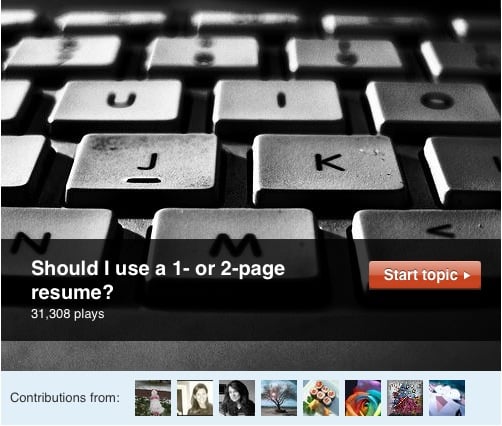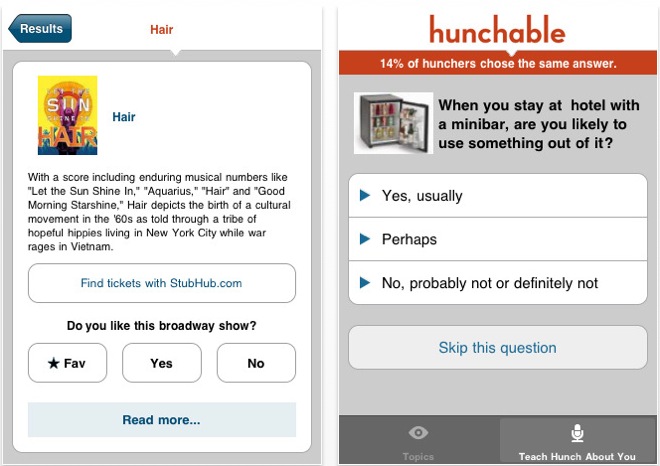Blog
How to Blossom as an Instructional Designer
by Ethan Edwards, chief instructional strategist


I've Got a Hunch e-Learning Could be Better
By Allen Interactions | June 10, 2010 | Custom Learning | 0 Comments

by Ethan Edwards, chief instructional strategist
I've been playing around with a fun website, hunch.com, and its
accompanying iPhone app, Hunchable. The premise is sort of
preposterous but irresistible. You answer a series of questions about
your preferences in all sorts of categories, and then the site
assembles a portrait of you, from which it gives you suggestions about other aspects of your life--from what car to buy (Volkswagen Jetta) to what kind of salad to eat (Arugula with Pears and Gorgonzola), and even to if you should wear a beard (Yes). At worst, it's greatly amusing. But it can also be incredibly helpful at times in guiding you with its hunches, suggesting restaurants you might like in a new city, or bookstores you would find interesting. etc.


This has made me think about how transforming this approach could be in creating truly adaptive and individualized e-learning. We have elaborately sophisticated Learning Management Systems that collect volumes of information about our learners, yet that information is rarely used to actually enhance the learner experience. If we could observe that a learner showed a preference for diving right into activities to learn by trial and error, we could use that knowledge to
structure an experience with more learner control than for another student we knew preferred to read instructions and content carefully before being tested. If we knew that a student tended to do online assignments in short bursts, we could cue up our content in smaller, more easily chunked modules, than we would for a student who tended to like long, uninterrupted sessions.
If this sounds extreme, I'd like to remind us all that this is actually what a really good tutor does--being observant of learning styles and subtly adjusting the teaching approach of the moment to match a learner's preferences--even about things of which the learner might not be fully aware.
Even if our training programs didn't try to make predictions, but rather simply were observant and mindful of the learner, it would do wonders, I think, in engaging the learner. If I choose to skip (or fail) pretests, the lesson should quit forcing me into opportunities for guaranteed failure. If I chose to turn off the narration last
time, then assume that that's what I still desire until I say otherwise. I think striving for this kind of personalization could translate into so much more effective interaction than superficial but ultimately irrelevant things like choosing the hairstyle for my coach avatar.
.png?width=135&height=135&name=ai-symbol-green%20(3).png)
About the Author: Allen Interactions
Comments
Would you like to leave a comment?
Related Blog Posts

By: Allen Interactions | Apr, 2010
Category: Custom Learning

Blog
Will Your e-Learning Investments Bear Fruit?
by Ethan Edwards, chief instructional strategist
By: Allen Interactions | Mar, 2011
Category: Custom Learning

Blog
All the Things e-Learning Can Be
by Ethan Edwards, chief instructional strategist
By: Allen Interactions | Oct, 2010
Category: Custom Learning
